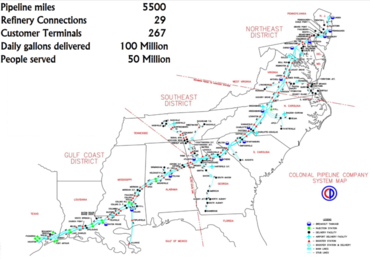Power plays
 We are still catching up on updates and trends.
We are still catching up on updates and trends.
Two days before the self-imposed deadline, someone blinked in the game of financial chicken between Amazon UK and Visa. We don't know which one it was, but on January 17 Amazon said it wouldn't stop accepting Visa credit cards after all. Negotiations are reportedly ongoing.
Ostensibly, the dispute was about the size of Visa's transaction fees. At Quartz, Ananya Bhattacharya quotes Banked.com's Ben Goodall's alternative explanation: the dispute allowed Amazon to suck up a load of new data that will help it build "the super checkout for the future. For Visa, she concludes, resolving the dispute has relatively little value beyond PR: Amazon accounts for only 1% of its UK credit card volume. For the rest of us, it remains disturbing that our interests matter so little. If you want proof of market dominance, look no further.
In June 2021, the Federal Trade Commission tried to bring an antitrust suit against Facebook, and failed when the court ruled that in its complaint the FTC had failed to prove its most basic assumption: that Facebook had a dominant market position. Facebook was awarded the dismissal it requested. This week, however, the same judge ruled that the FTC's amended complaint, which was filed in August, will be allowed to go ahead, though he suggests in his opinion that the FTC will struggle to substantiate some of its claims. Essentially, the FTC accuses Facebook of a "buy or bury" policy when faced with a new and innovative competitor and says it needed to make up for its own inability to adapt to the mobile world.
We will know if Facebook (or its newly-renamed holding company owner, Meta) is worried if it starts claiming that damaging the company is bad for America. This approach began as satire, Robert Heller explained in his 1994 book The Fate of IBM. Heller cites a 1990 PC Magazine column by William E. Zachmann, who used it as the last step in an escalating list of how the "IBMpire" would respond to antitrust allegations.
This week, Google came close to a real-life copy in a blog posting opposing an amendment to the antitrust bill currently going through the US Congress. The goal behind the bill is to make it easier for smaller companies to compete by prohibiting the major platforms from advantaging their own products and services. Google argues, however, that if the bill goes through Americans might get worse service from Google's products, American technology companies could be placed at a competitive disadvantage, and America's national security could be threatened. Instead of suggesting ways to improve the bills, however, Google concludes with the advice that Congress should delay the whole thing.
To be fair, Google isn't the only one that dislikes the bill. Apple argues its provisions might make it harder for users to opt out of unwanted monitoring. Free Press Action argues that it will make it harder to combat online misinformation and hate speech by banning the platforms from "discriminating" against "similarly situated businesses" (the bill's language), competitor or not. EFF, on the other hand, thinks copyright is a bigger competition issue. All better points than Google's.
A secondary concern is the fact that these US actions are likely to leave the technology companies untouched in the rest of the world. In Africa, Nesrine Malik writes at the Guardian, Facebook is indispensable and the only Internet most people know because its zero-rating allows its free use outside of (expensive) data plans. Most African Internet users are mobile-only, and most data users are on pay-as-you-go plans. So while Westerners deleting their accounts is a real threat to the company's future - not least because, as Frances Haugen testified, they produce the most revenue - the company owns the market in Africa. There, it is literally the only game in town for both businesses and individuals. Twenty-five years ago, we thought the Internet would be a vehicle for exporting the First Amendment. Instead...
Much of the discussion about online misinformation focuses on content moderation. In a new report the Royal Society asks how to create a better information environment. Despite its harm, the report comes down against simply removing scientific misinformation. Like Charles Arthur in his 2021 book Social Warming, the report's authors argue for slowing the spread by various methods - adding a friction to social media sharing, reconfiguring algorithms, in a few cases de-platforming superspreaders. I like the scientists' conclusion that simple removal doesn't work; in science you must show your work, and deletion fuels conspiracy theories. During this pandemic, Twitter has been spectacular at making it possible to watch scientists grapple with uncertainty in real time.
The report also disputes some of our longstanding ideas about how online interaction works. A literature review finds that the filter bubbles and echo chambers Eli Pariser posited in 2011 are less important than we generally think. Instead most people have "relatively diverse media diets" and the minority who "inhabit politically partisan online news echo chambers" is about 6% to 8% of users.
Keeping it that way, however, depends on having choices, which leads back to these antitrust cases. The bigger and more powerful the platforms are, the less we - as both individuals and societies - matter to them.
Illustrations: The Thames at an unusually quiet moment, in January 2022.
Wendy M. Grossman is the 2013 winner of the Enigma Award. Her Web site has an extensive archive of her books, articles, and music, and an archive of earlier columns in this series. Stories about the border wars between cyberspace and real life are posted occasionally during the week at the net.wars Pinboard - or follow on Twitter.


_nave_left_-_Monument_to_Doge_Giovanni_Pesaro_-_Statue_of_the_Doge-thumb-370x294-1111.jpg)

